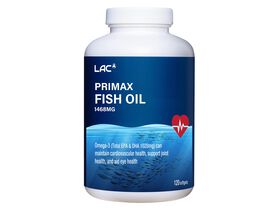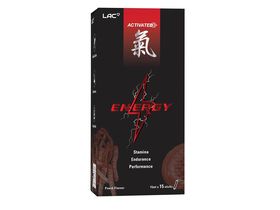The Queen Bee’s Secret

Let's discover the benefits of royal jelly!
What is royal jelly?
Royal jelly, also known as “bee milk” or “Queen Bee Jelly”, is a protein-rich milky secretion produced by worker honeybees to feed the queen bee. The name “Queen Bee Jelly” was given as this is the only food consumed by the queen bees that has a significant effect on extending their life span up to 5 years. On the contrary, worker bees only use pollen and nectar as their food source and usually lives 2 – 6 weeks in the summer and approximately 20 weeks in the winter. [1]
Royal jelly is rich in protein, amino acids, fatty acids, carbohydrates, vitamins, and minerals. Royalactin is the most important protein present in royal jelly that contributes to the longevity of the queen bee. [2] Another major lipid component found in royal jelly is 10-HDA. This functional property has been reported to support numerous pharmacological and therapeutic effects, such as antioxidant, anti-inflammatory, and immune boosting. [3]
The differences between honey, propolis, and royal jelly
Honey is a liquid made with nectar from flowers gathered by the bees. It is composed mostly of sugar glucose and fructose. The color and flavor vary based on the nectar collected by the bees. Due to its natural sweetener, honey is widely used as an anti-inflammatory, antioxidant, and antibacterial agent. [4]
While propolis is a mixture of beeswax, oils, and resins collected by bees to strengthen the construction of the beehive. It has a milder sweetness compared to honey and can sometimes have a hint of bitterness, which some consumers may find less palatable. Propolis has been reported to have various health benefits related to gastrointestinal disorders, gynecological care, oral health, oncological treatment and is widely used in dermatological and skin care products. [5]
Unlike honey and propolis, royal jelly is a secreted milky substance used to feed larvae and queen bees. It is often used as a remedy in both traditional and modern medicines to aid various health conditions despite its naturally bitter and sour taste. According to some studies, royal jelly may treat certain symptoms of menopause, delay the aging process, wound healing, and reduce the risk of heart disease. [6]
Potential health benefits of royal jelly
Promote healthy aging
Several studies have shown that royal jelly has the potential to promote longevity through its natural compounds, which are royalactin, 10-HDA, and pantothenic acid. [7] Besides, royal jelly could also improve age-related impairment of motor functions. [8]
Enhance immunity
Increasing evidence suggests that the proteins in royal jelly are the key active factors that boost the immune system. It helps to regulate immune function by stimulating white blood cells and reducing the number of bacteria and other harmful organisms in the body. [9]
Wound healing and skin repair
Royal jelly is widely claimed to possess an anti-inflammatory action and plays a crucial role in wound healing. This anti-inflammatory property helps to speed up the healing process by reducing swelling and redness around the wound. Royal jelly also promotes collagen production, which is essential for skin healing. [10]
Reduce symptoms of menopause
Menopause is caused by the decreased production of estrogen levels in women by showing symptoms such as hot flashes, insomnia, mood swings, fatigue, backache, lower back pain, and headache. Some studies have found that royal jelly is beneficial for reducing the severity of menopause symptoms by rebalancing the hormonal concentration in the blood and increasing the estrogen levels. [11]
Reduce the risk of heart disease
Having high LDL cholesterol levels may lead to fatty deposits in blood vessels. Eventually, this may clog the arteries and increase the risk of heart attack or stroke. Royal jelly may help lower LDL cholesterol levels with its rich fatty acids that contain hypolipidemic properties. [12]
Precautions for taking fresh royal jelly
Eat it raw - It is possible to take raw royal jelly, directly from the spoon. We recommend placing fresh royal jelly under your tongue for at least 5 minutes until it melts. This allows it to be absorbed directly into your bloodstream, providing the best results. [13] Alternatively, you may spread it on a toast.
Use cold or lukewarm water - If you are mixing royal jelly into your tea, coffee or smoothie as a sweetener, ensure that the water is not above 35ºC.
No metal spoons - The healing properties of royal jelly may react with the metallic surface of a metal spoon; Thus, it is best to use a wooden, ceramic or plastic spoon.
Do not mix royal jelly with boiling liquids - The heat will sterilize the royal jelly, stripping off its antimicrobial properties.
Eat it on an empty stomach - Ideally, royal jelly is best consumed in the morning on an empty stomach to benefit from its positive properties.
Recommendations for taking fresh royal jelly
For health maintenance, it is recommended to go with a dosage as low as ¼ teaspoon of royal jelly per day. On the other hand, it's also a good idea to always read the recommended intake direction listed on the label.
Who should avoid royal jelly
Royal jelly is not recommended for infants, children, pregnant and breastfeeding women. Besides, individuals with asthma or allergies to bee should be cautious as they are at increased risk of allergic reactions. [14]
Consumption of royal jelly and its appropriate dose varies for every individual. It is recommended to always consult your healthcare provider or pharmacist before taking royal jelly.
[1] https://royalsocietypublishing.org/doi/10.1098/rsos.200998
[2] https://www.hindawi.com/journals/omcl/2017/1259510/#B111
[3] https://www.mdpi.com/1420-3049/28/4/1972#B15-molecules-28-01972
[4] https://www.mayoclinic.org/drugs-supplements-honey/art-20363819#:~:text=In%20addition%20to%20its%20use,burns%20and%20promote%20wound%20healing.
[5] https://www.ncbi.nlm.nih.gov/pmc/articles/PMC5549483/
[6] https://www.healthline.com/nutrition/royal-jelly#TOC_TITLE_HDR_3
[7] https://www.ncbi.nlm.nih.gov/pmc/articles/PMC6802361/
[8] https://pubmed.ncbi.nlm.nih.gov/30200401/
[9] https://www.ncbi.nlm.nih.gov/pmc/articles/PMC9967945/#:~:text=Previous%20reports%20indicated%20that%20major,a%20potent%20immune%2Dregulating%20function.
[10] https://e-nrp.org/DOIx.php?id=10.4162/nrp.2010.4.5.362
[11] https://www.hindawi.com/journals/omcl/2017/1259510/
[12] https://www.ncbi.nlm.nih.gov/pmc/articles/PMC7397171/#:~:text=Human%20studies%20regarding%20beneficial%20effects%20of%20royal%20jelly%20in%20menopause.&text =After%2012%20weeks%20of%20treatment,in%20comparison%20to%20placebo%20group.
[13] http://www.mmm.ba/royal-jelly/Use-and-dosage-Royal-jelly.html#:~:text=We%20recommend%20that%20you%20consume,what%20gives%20the% 20best%20effect.
[14] https://www.verywellhealth.com/the-benefits-of-royal-jelly-89507







